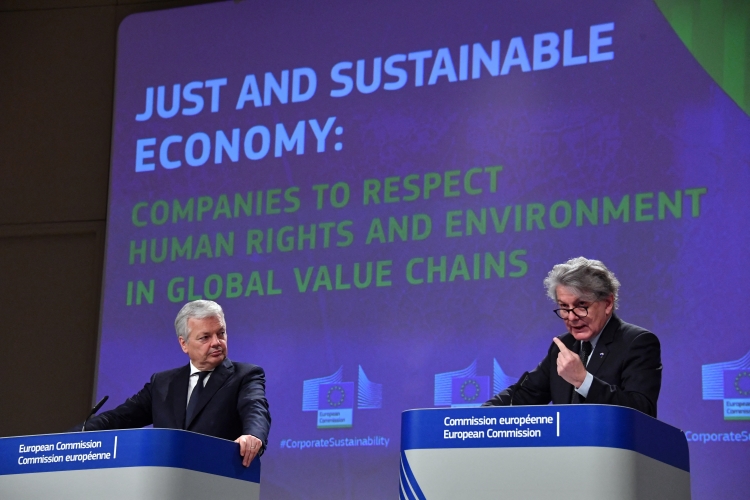The directive is an important step in realising the ITUC’s demand for a global regulatory architecture that guarantees a floor of rights for all workers, sustains the climate and ends corporate impunity by ensuring corporate accountability.
However, on key and substantive aspects the draft is a disappointment that threatens to create legal uncertainty for victims and rights-holders.
Furthermore, it could create an unequal playing field for businesses, some of which have invested heavily in due diligence and corporate accountability for human and environmental rights since the UN Human Rights Council endorsed the Guiding Principles (UNGPs) in its resolution 17/4 of 16 June 2011.
In particular, we are concerned that:
- victims and rights-holders are not the primary focus of this draft, contrary to the resolution of the EU Parliament on due diligence and corporate accountability published in March 2021;
- basic principles established by the United Nations Guiding Principles on Business and Human Rights (UNGPs) in respect of all businesses and their obligation to conduct human rights due diligence has been muddled in this draft with exemptions for small and medium-sized enterprises (SMEs), therefore excluding 99% of all businesses in Europe;
- the narrow focus on established business relationships opens a major loophole; and
- the draft rewards reluctant businesses and punishes businesses who have over the years invested in due diligence and corporate accountability.
- ITUC General Secretary Sharan Burrow said: “There are bright spots in this draft – no doubt – but the obsession with creating a balance between the interest in advancing the goals of the directive and the interest in minimising the financial and administrative burdens of companies, as well as limiting the so-called affluence of litigation cases, explains both the delay in publishing the directive, the misalignment with the UNGPs and the inadequate focus on rights-holders and victims.
“A strong directive on sustainable corporate due diligence is urgently needed at this time of rising human and environmental rights violations, including violations of labour and trade union rights by companies around world, including by European companies.
“We have work ahead of us to consult with our European trade union colleagues, other civil society organisations, and friends in the business and human rights community to ensure that these misalignments are addressed and the focus is rightly back on victims and rights-holders. Holding businesses accountable for their adverse human rights impacts on people and the planet must be the foundation of a new business model that was the promise of this directive, and it is what the world has been waiting for.”


